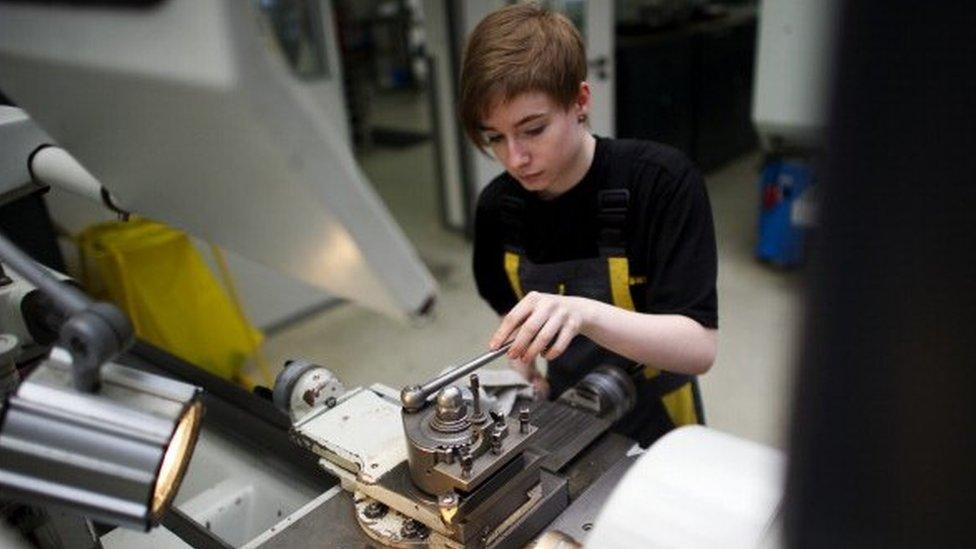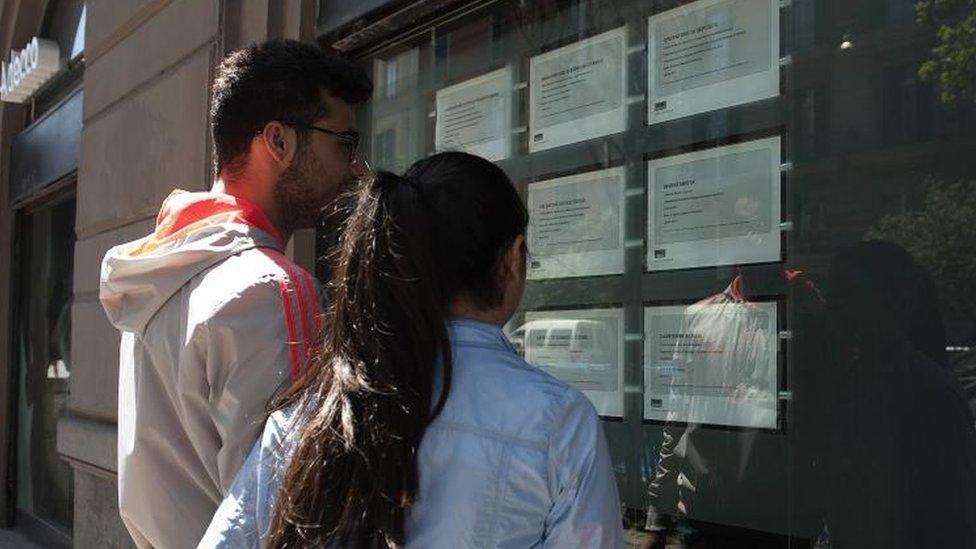European employment rises 1.4% to hit record levels
- Published

Employment reached record levels across the eurozone and the wider European Union during the first quarter.
Statistics agency Eurostat said 234.2m people were in work across the EU between January and March, of which 154.8m were in the eurozone area.
Employment rose by 0.4% in both the EU and eurozone compared with the final three months of 2016.
Compared with last year, 1.5% more people in the countries using the single currency had jobs.
Estonia boasted the biggest rise in employment followed by Malta and Sweden. The worst performers were led by Latvia, Romania and Croatia.
Despite strong jobs figures, other data revealed a slowdown in industrial production which rose by 1.4% in both the eurozone and EU, compared with a 2.2% increase in March.
The positive figures bode well for the bloc's economic growth figures for the second quarter, after an 0.6% rise in the first three months of the year.
Meanwhile, Iceland's central bank announced its second interest rate cut in two months, with a quarter point reduction to 4.5%.
In the first quarter, Iceland economy shrank by 1.9% - the sharpest contraction since 2014.
Iceland is part of the European Economic Area but not the eurozone or EU.
- Published5 June 2017

- Published3 April 2017
